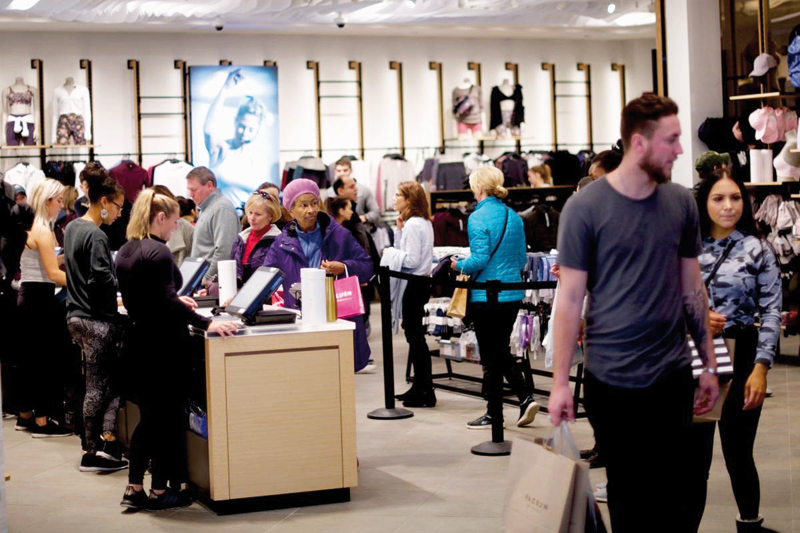

WASHINGTON: US retail sales recorded their biggest drop in more than nine years in December as receipts fell across the board, suggesting a sharp slowdown in economic activity at the end of 2018. The shockingly weak report from the Commerce Department on Thursday led to growth estimates for the fourth-quarter being cut to below a 2.0 per cent annualized rate.
December’s collapse in retail sales and other data showing an unexpected increase in the number of Americans filing claims for unemployment benefits last week and a second straight monthly decline in producer prices in January support the Federal Reserve’s pledge to be “patient” before raising interest rates further this year.
“Until this morning, Fed official hesitance to hike further was based on risks emanating from global growth and from financial markets, despite a strong domestic outlook,” said Andrew Hollenhorst, an economist at Citigroup in New York. “The decline in retail sales calls into question the domestic growth assumption.”
Retail sales tumbled 1.2 per cent, the largest decline since September 2009 when the economy was emerging from recession. Sales edged up 0.1 per cent in November. Economists polled by Reuters had forecast retail sales gaining 0.2 per cent in December. Sales in December rose 2.3 per cent from a year ago.
The December retail sales report was delayed by a 35-day partial shutdown of the federal government that ended on January 25. No date has been set for the release of the January retail sales report, which was scheduled for publication on Friday.
With online retail giant Amazon reporting strong December sales and independent data on chain-store sales robust, some economists joined White House economic adviser Larry Kudlow in questioning the credibility of the report.
They argued that the longest government shutdown in history could have impacted on the collection of data. But the Commerce Department said the “processing and data quality were monitored throughout and response rates were at or above normal levels for this release.”
Others were reluctant to dismiss the retail sales report, noting that the plunge in sales came as consumer confidence dropped and the US stock market suffered its worst December.
The weak report was corroborated by another report on Thursday from the National Retail Federation showing holiday spending in 2018 grew 2.9 per cent to $707.5 billion, with sales in December falling 1.5 per cent from November.
“The most plausible economic explanation is that long-dormant wealth effects came back with a vengeance, and consumers slashed their holiday purchases when they saw their 401(k)s going down the drain,” said Michael Feroli, an economist at JPMorgan in New York, referring to the retirement savings plans held by millions of Americans.
Excluding automobiles, gasoline, building materials and food services, retail sales dropped 1.7 per cent last month, the biggest fall since September 2001. These so-called core retail sales correspond most closely with the consumer spending component of gross domestic product.
They surged 1.0 per cent in November. December’s sharp drop in core retail sales suggested a cooling in the pace of consumer spending in the fourth quarter. Consumer spending, which accounts for more than two-thirds of the US economy, increased at a 3.5 per cent rate in the July-September quarter. — Reuters
Oman Observer is now on the WhatsApp channel. Click here



